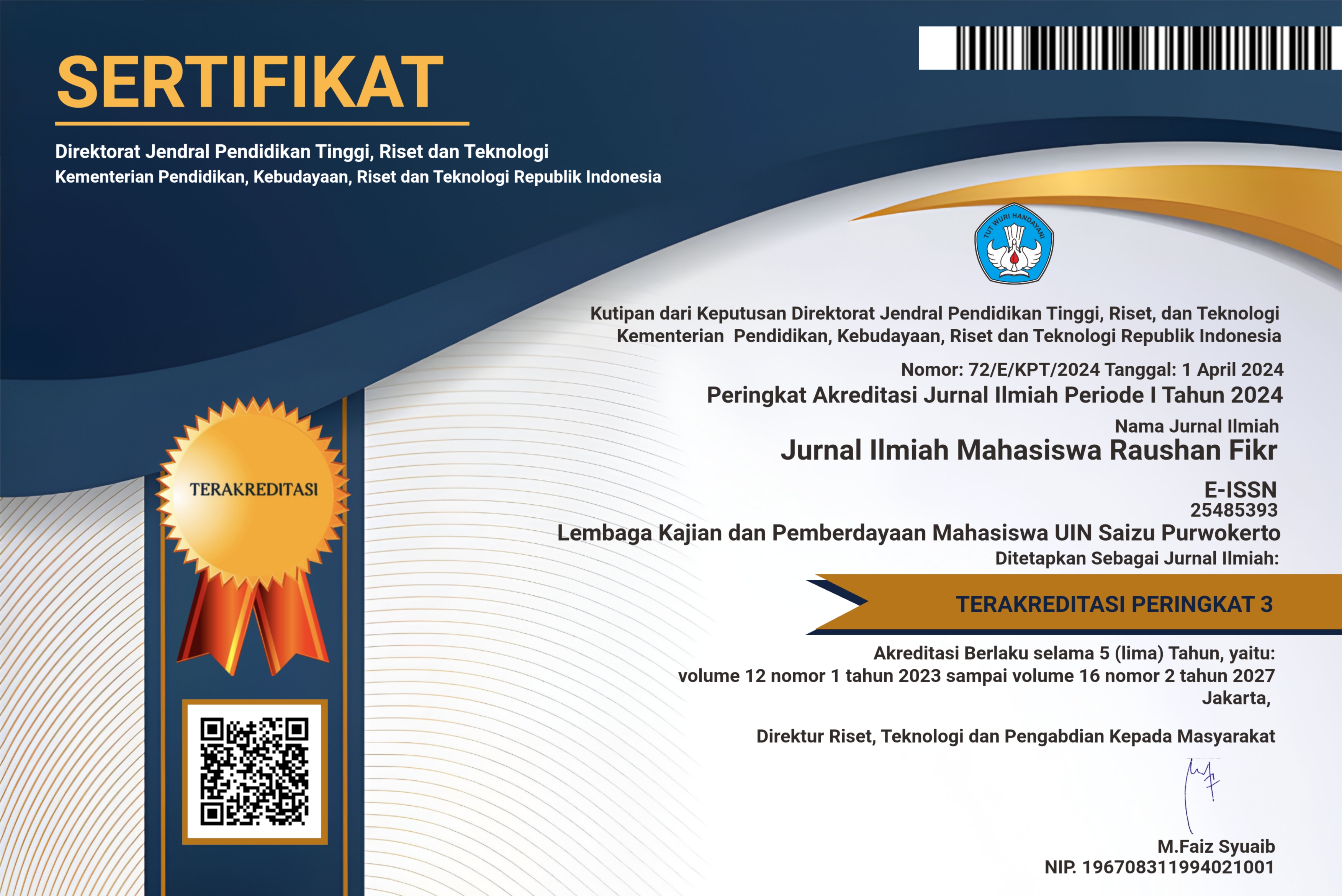WACANA KESETARAAN GENDER DALAM AL-QUR'AN DAN HADIS MENURUT HUSEIN MUHAMMAD
DOI:
https://doi.org/10.24090/jimrf.v7i1.2145Keywords:
Gender Equality, Reinterpretation of the Qur’an-Hadith, Thought of Husein MuhammadAbstract
The thought of Husein Muhammad regarding the teachings of Islam in society still raises many questions in the world of Qur’anic study and Hadith, especially his thoughts on the relation between men and women known as gender equality. As a person who wrestles in the world of pesantren, this gender deviation takes place because of the perspective of societys influenced by religious doctrines, in this classical Islamic literature is considered biased toward women. The mainstream interpretation by the classical scholars is still believed by the majority of Muslim societies to this day, still placing men as superior beings against women. This perspective is clearly contrary to the ideals of the Qur’an itself, namely equality and freedom to determine life’s choices without any threat and violence or coercion from anyone. The interpretation that is considered biased towards women, caused by mistakes in interpreting religious texts, does not occur because of the inability to interpret a text, but because of the sociocultural influence on the interpreter in which they live, involved in interpreting the texts . Not only that, the taking of traditions of the Prophet as explanation and advocate of opinion of scholars sometimes not known the quality, not shahih, maudhu ‘even dai’f. Husein’s ideas are different from other Islamic feminists. The peculiarity of Husein’s ideas in carrying the discourse of Islam and gender is the depth of Islamic classical literature in analyzing or counterarging arguments against gender inequalities in societies rarely shared by other feminists. It is considered necessary to know how Husein Muhammad reinterpreted verses of the Qur’an that were considered biased against women. Though his thoughts were widely opposed by the ‘ulama, Husein has given so much to the idea of defending and liberating women from oppression.Downloads
References
_________, Islam Agama Ramah Perempuan: Pembelaan Kiai Pesantren, Yogyakarta: LKiS. 2004.
_________, Mengaji Pluralisme kepada Maha Guru Pencerahan. Bandung: Mizan. 2011.
_________, Spiritualitas Kemanusiaan: Perspektif Islam Kemanusiaan. Yogyakarta: LKiS, 2006.
Nuruzzaman, M. Kiai Husein Membela Perempuan. Yogyakarta: Pustaka Pesantren, 2005.
Software Mausu’ah al-Qur’an al-Karim.
Susanti. “Feminisme Dalam Perspektif Husein Muhammad,†Tesis Fakultas Ushuluddin dan Filsafat, Universitas Islam Negeri Sunan Ampel Surabaya, 2014.
_________, “Husein Muhammad Antara Feminis Islam dan Feminis Liberal,†Teosofi IV: Jurnal Tasawuf dan Pemikiran Islam, no.1 (2014): h. 199.
Downloads
Published
How to Cite
Issue
Section
License
Authors who publish with this journal agree to the following terms:
- Authors retain copyright and grant the journal right of first publication with the work simultaneously licensed under a Creative Commons Attribution-NonCommercial-ShareAlike 4.0 International License that allows others to share the work with an acknowledgement of the work's authorship and initial publication in this journal.
- Authors are able to enter into separate, additional contractual arrangements for the non-exclusive distribution of the journal's published version of the work (e.g., post it to an institutional repository or publish it in a book), with an acknowledgement of its initial publication in this journal.
- Authors are permitted and encouraged to post their work online (e.g., in institutional repositories or on their website) prior to and during the submission process, as it can lead to productive exchanges, as well as earlier and greater citation of published work (See The Effect of Open Access).
















